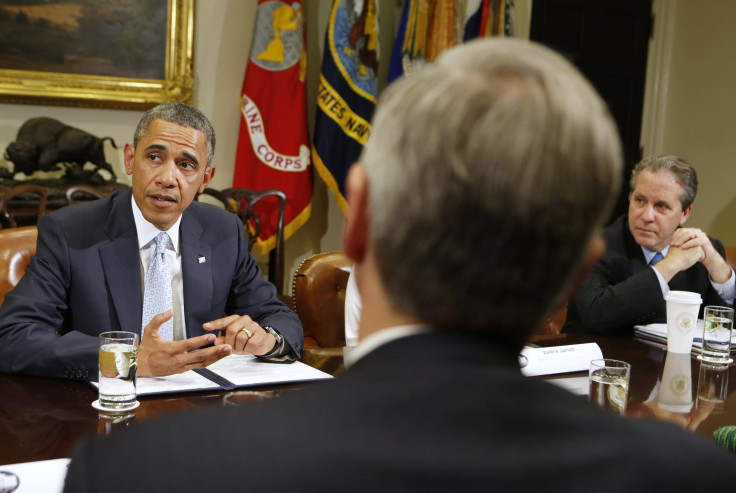
Even with the House's Republican majority unwilling to consider the Senate's comprehensive immigration reform bill and its members unlikely to draw up legislation which extends a path to citizenship of any of the nation's undocumented immigrants - a tenet which most Democrats see as the heart of any immigration bill - the White House has said President Barack Obama won't issue an executive order to legalize the undocumented. But more and more journalists and analysts seem to believe it's likely that if Congress can't agree, Obama will act on immigration alone for the second time in his presidency - the first time coming in his issuing of Deferred Action for Childhood Arrivals (DACA) in June 2012, which made almost 2 million young undocumented immigrants eligible for work authorization and a two-year reprieve from deportation procedures.
One of the first to suggest it was Senator Marco Rubio (R-Fla.), who served as one of the eight senators who crafted that chamber's comprehensive bill. In mid-August, Rubio told a Tampa Bay radio station, "I have maintained now for more than a year that I believe that this president will be tempted - if nothing happens in Congress, he will be tempted - to issue an executive order like he did for the DREAM Act kids a year ago, where he basically legalizes 11 million people by the sign of a pen." The Florida senator indicated that he sees that as the worst of all possible scenarios; in that case, he said, legalization would come without the hugely beefed-up border security provisions of the Senate bill (which tally some $42 billion). Shortly afterward, White House spokesman Keith Maley denied that this was a possibility. "No," said Maley. "The only solution to this problem is for Congress to fix the broken immigration system by passing comprehensive reform."
The Washington Post wrote last week that Obama wouldn't have the authority to do what Rubio says he might. But, according to the paper, the president could expand DACA to protect a wider swath of the United States' undocumented population than just young people brought here by their parents. And in an article published on Wednesday in the Atlantic, two leaders of immigrant advocate groups said if legislation were to be definitively downed, they would pressure the White House to act unilaterally. Ricardo Morales, director of deportation prevention for the PICO National Network, said, "Organizers think long term, so they know that legislation is one way, but that DACA has proven that the administration can provide another way." Frank Sharry, director of America's Voice, the biggest immigrant-advocacy group in the nation, said his group might eventually "look at all of our options, including pressing the president".
RELATED: Could John McCain Support Legal Status Without Citizenship For The Undocumented?
© 2025 Latin Times. All rights reserved. Do not reproduce without permission.




